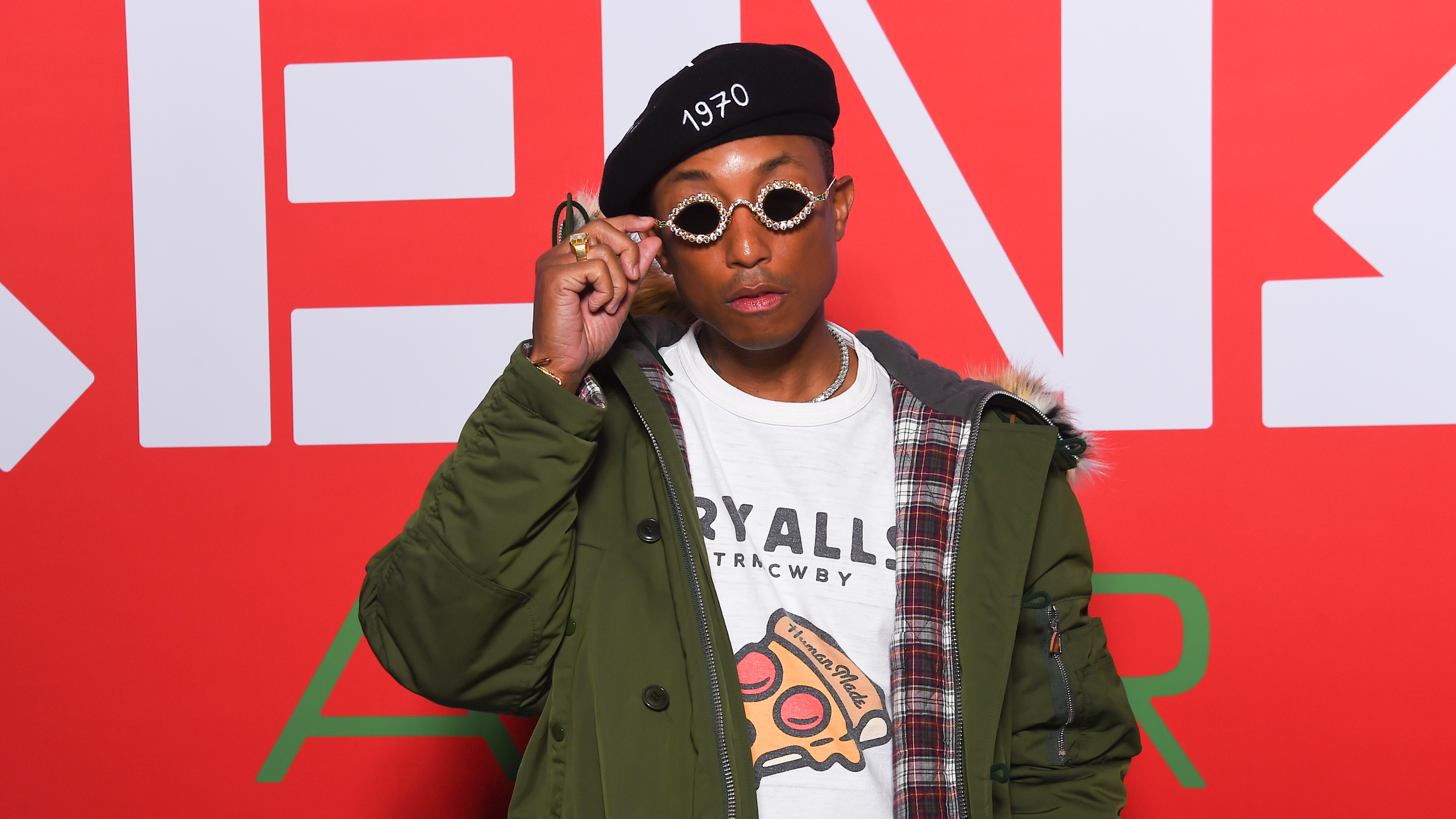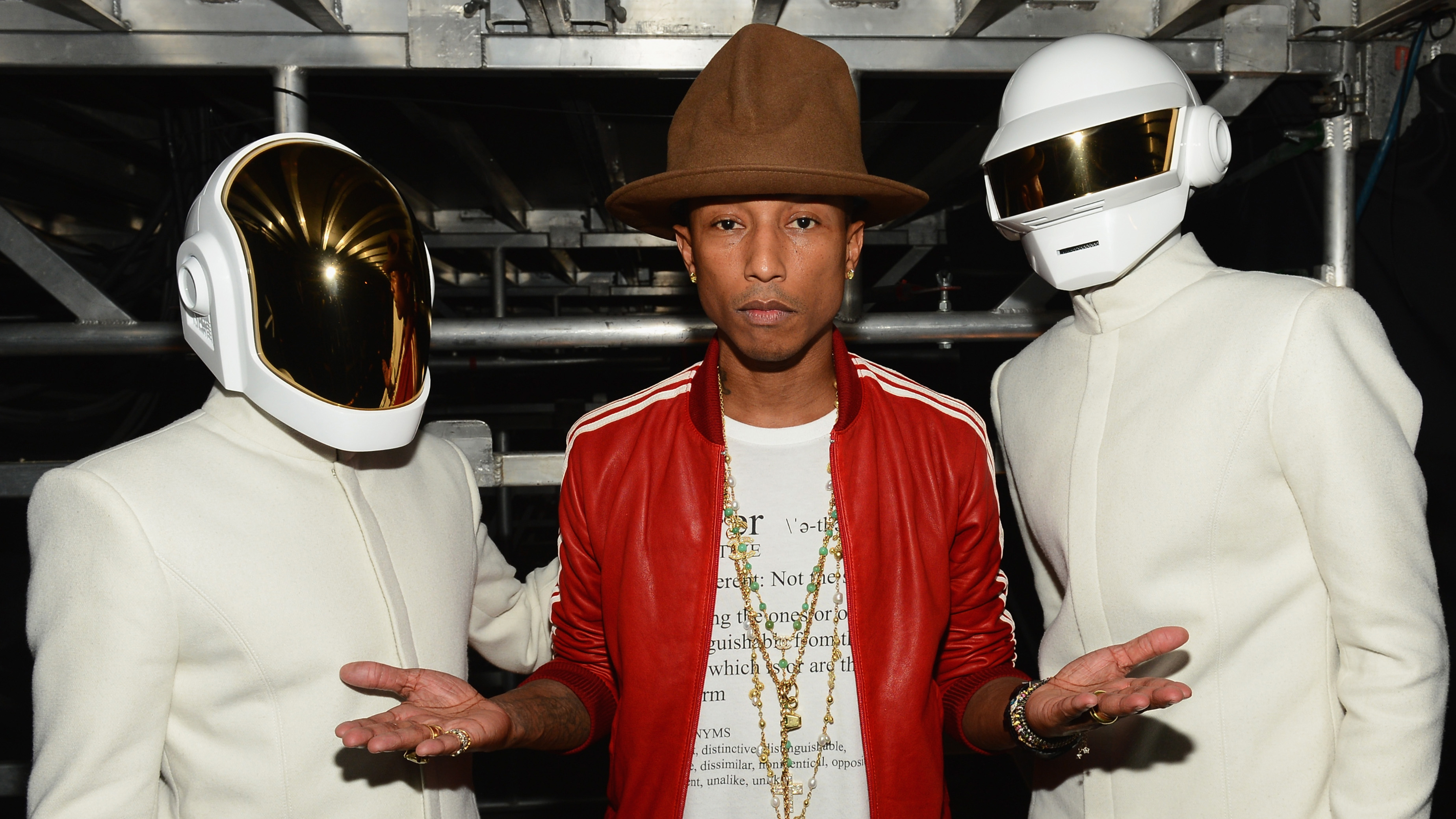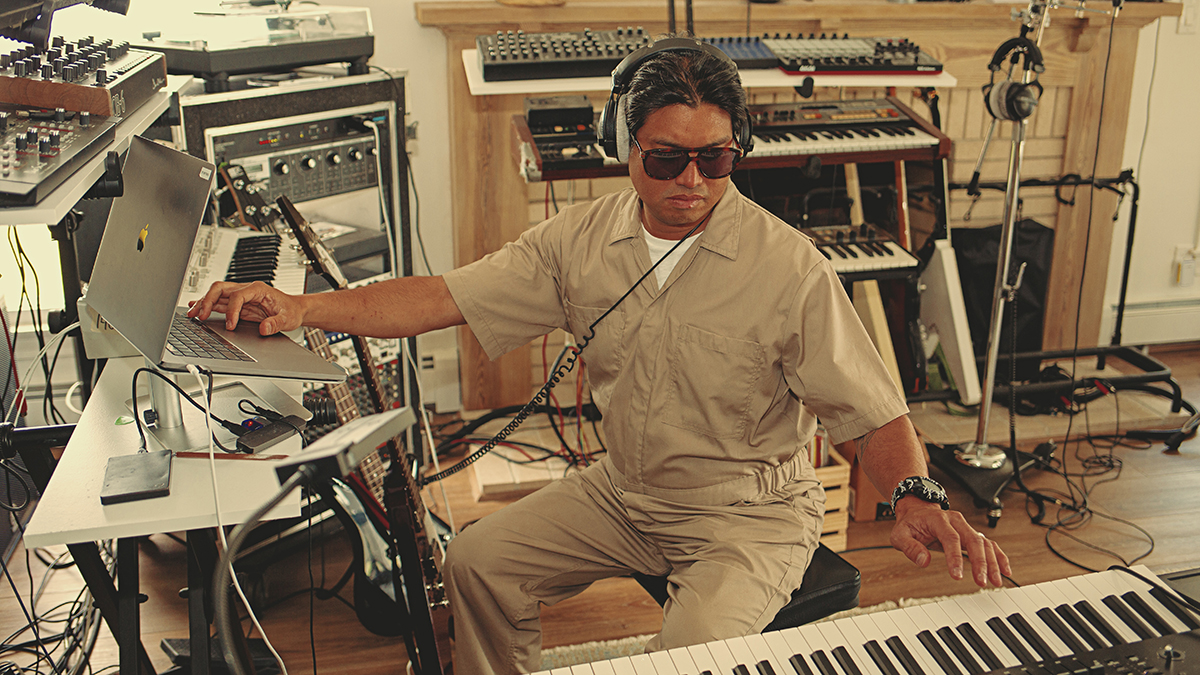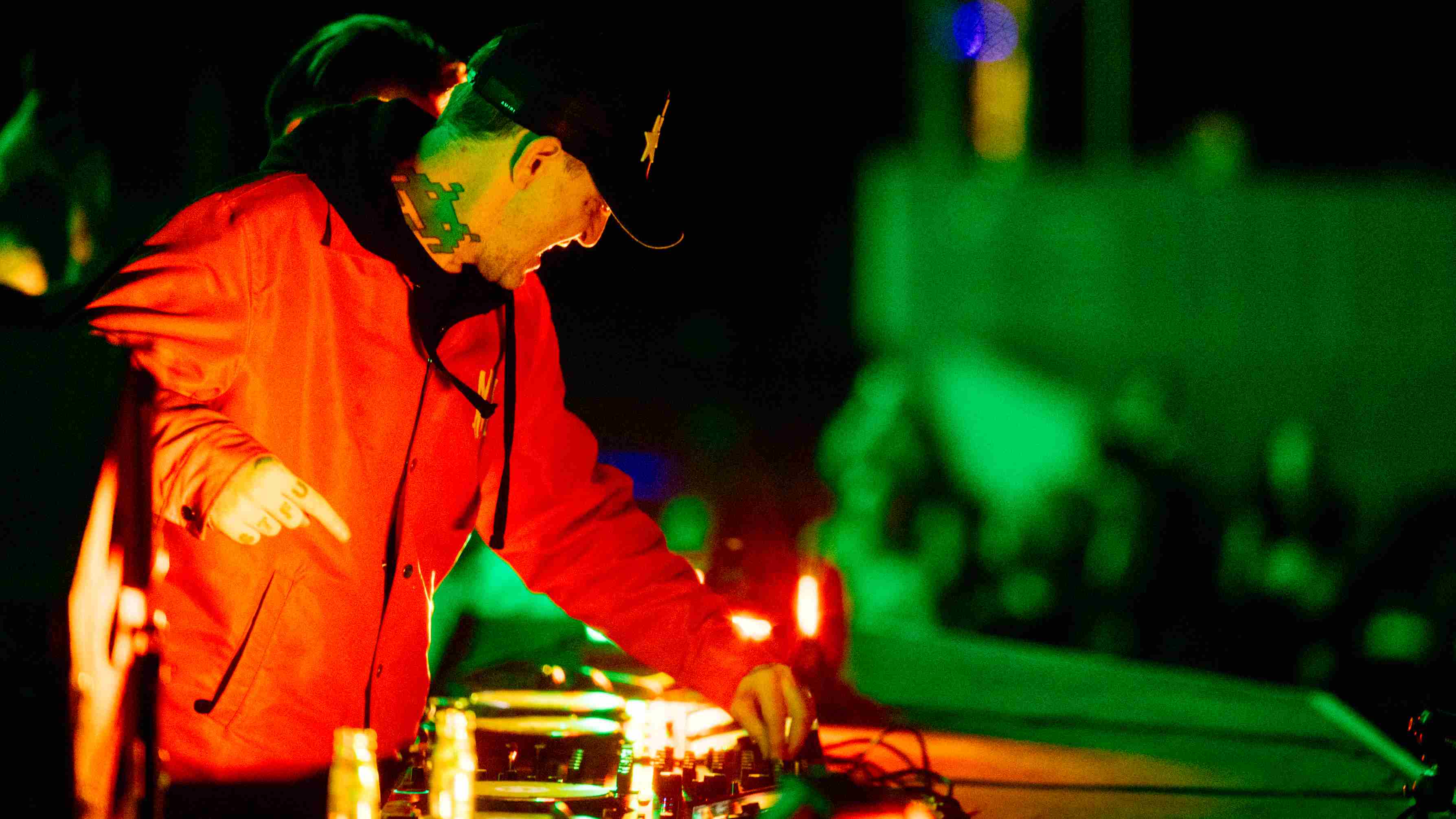"Everything was so heavy at the time, so I was like, ‘Oh, you know what? I’m gonna completely do the opposite’": How Pharrell's pop production defined the sound of the ’00s and beyond
Producer, pop star, and pioneer Pharrell Williams' "skeleton songs" stripped music back to its bare essentials and prized the hook above all else

Very few musicians have commanded the same level of influence as Pharrell Williams. Flourishing both behind the boards and in front of the mic, Pharrell has made a name for himself as both a world-dominating artist and a hit-making producer, earning legions of fans, the respect of the industry and a trophy cabinet’s worth of accolades in the process.
Born in Virginia, Pharrell was immersed in music from an early age; at only 12 years old, he met his future production partner Chad Hugo at a summer camp for musicians. “Have you seen that movie School of Rock?,” Hugo told The Age magazine in 2007. “That was us, except we played jazz standards”.
Bonding over a shared love for A Tribe Called Quest, the precocious pair soon struck up a musical partnership as The Neptunes, before another fortuitous meeting found producer and architect of the ‘new jack swing’ sound Teddy Riley dropping in at their school talent show.
Before long, Pharrell and Hugo had a record deal, and The Neptunes were born. The wildly successful duo went on to produce some of the most recognizable hits of the ‘00s; Nelly’s Hot in Herre, Kelis’ Milkshake, Britney Spears’ I’m a Slave 4 U, Snoop Dogg’s Drop It Like It’s Hot, Gwen Stefani’s Hollaback Girl, Justin Timberlake’s Rock Your Body, Missy Elliott’s On & On… the list goes on (and on).
Folding together elements of hip-hop, R&B funk, soul and even rock music into a catchy, often raunchy and instantly accessible pop package, The Neptunes became an unstoppable force and an unavoidable presence on chart radio; a 2004 survey found that at one point, 43% of songs played on US airwaves had been graced by Pharrell’s Midas touch. That same year, The Neptunes deservedly took home Producer of the Year at the Grammy Awards, an accolade Pharrell would go on to win twice more.
“The Neptunes is what we do”, Pharrell told The Age, “but N.E.R.D. is what we are”. A Neptunes side project formed with schoolfriend Shay Haley, N.E.R.D. smashed up hip-hop, funk and rock music to produce brash, bouncy and playful hits that, while they never reached the stratospheric levels of success of The Neptunes’ outside production work, earned a devoted following and paved the way for even goofier, more experimental hip-hop artists like Tyler, the Creator to flourish in the ‘10s and beyond.
As Pharrell’s star continued to burn ever-brighter, the artist began to find success independent of his long-time creative partner. His debut solo album, In My Mind, came out in 2006, before Hollywood came calling and he was invited to compose the soundtrack for the animated box office smash Despicable Me. It was this film’s sequel, however, that would bring Pharrell the opportunity to record what’s become perhaps his biggest hit, the colossally popular 2013 hit Happy, an infectious, terminally jaunty number that hit No 1 in 24 countries.
Get the MusicRadar Newsletter
Want all the hottest music and gear news, reviews, deals, features and more, direct to your inbox? Sign up here.

Another solo album followed, along with a further spate of collaborations that would forever etch Pharrell’s name into the pop history books; Daft Punk’s Get Lucky and Robin Thicke’s much-maligned Blurred Lines, to name just a handful. By this point, there was no stopping the man, with his influence extending outward beyond music and further into film, fashion and pop culture, as Pharrell became one of the few music producers to outshine the artists they started out working for and graduate to the status of genuine icon.
"I was really into a minimalism thing. The least amount of sounds we could use, the better..."
What makes a Pharrell joint a Pharrell joint? Many have noted the stripped-back economy of his deceptively simple productions, which combine a handful of essential elements into tracks that become more than the sum of their parts; “skeleton songs”, Pharrell once called them. "I was really into a minimalism thing," he told NPR in 2013. "The least amount of sounds we could use, the better... I just thought everything was so heavy at the time, so I was like, 'Oh, you know what? I'm gonna completely do the opposite.'"
An emphasis on loose and fluid grooves, often ornamented with unexpected samples, is another fundamental, along with his producer-tag of sorts, the ‘four-count start’, imitating a record skipping, that introduces more than 200 songs across his discography. More than anything, though, Pharrell’s music is defined by the primacy of the hook, the earworm, that universally irresistible nugget of musical deliciousness that keeps us coming back for more.
Pharrell in five releases
1. N.E.R.D. - In Search Of... (2001)
N.E.R.D.'s debut album In Search Of... has an interesting story behind it. After an original, Neptunes-esque version of the album was released to lukewarm critical reception, the project was scrapped and re-recorded with live instrumentation; specifically, distorted guitars and the kind of drums you might find in a Papa Roach joint.
Whatever the motivation behind it, this stylistic left-turn was a hit with audiences, giving rise to an eminently funky, knowingly goofy variation on the rap-rock formula that became N.E.R.D.'s calling card.
2. Kelis - Milkshake (2003)
Only The Neptunes could’ve taken a beat this sparse and this strange and turned it into a party anthem that skyrocketed up the charts around the world. No kicks, no snares, just an Egyptian darbuka drum and a bell sample provide the backbeat here, while a few acoustic guitar chords and an oddly detuned (and dare we say, poorly played?) synth accompany Kelis’ scorching vocal performance. In typical Neptunes style, just a handful of elements were all they needed.
3. Snoop Dogg ft. Pharrell Williams - Drop It Like It’s Hot (2004)
For our money, the ultimate Neptunes production, Snoop’s Drop It Like It’s Hot is actually kind of out there for a pop song this catchy. The menacing and minimal beat showcases Pharrell’s talent for sampling real-world sounds, in this case, the ‘tsssss’ of a spray can and the sound of tongues clicking, transforming them into a production solid enough to contend with that iconic hook in the chorus.
4. Daft Punk ft. Pharrell Williams and Nile Rodgers - Get Lucky (2013)
Pharrell stepped out from behind the mixing desk for this one, the stonkingly popular lead single for Daft Punk’s Random Access Memories. While the French duo’s polished production and Nile Rodgers’ lithe guitar work set a high bar, it’s Pharrell’s soaring, soulful vocals that steal the show here, once again demonstrating his enviable knack for crafting earworms that bury themselves deep in your cranium.
5. Pharrell Williams - Black Yacht Rock Vol. 1: City of Limitless Access (2023)
Released last week with zero promotion or fanfare on Pharrell’s 51st birthday, Black Yacht Rock Vol: 1: City of Limitless Access is the artist’s first full-length solo release in a decade. Forgoing both the carnal subject matter and the star-studded guest lists of his previous albums, the project is a breezy, saccharine ode to Pharrell’s home state, all twinkling Rhodes, Auto-Tuned vocals and unflaggingly good vibes. As a keen-eared Twitter commenter notes, “he sure loves that snare”.



I'm MusicRadar's Tech Editor, working across everything from product news and gear-focused features to artist interviews and tech tutorials. I love electronic music and I'm perpetually fascinated by the tools we use to make it. When I'm not behind my laptop keyboard, you'll probably find me behind a MIDI keyboard, carefully crafting the beginnings of another project that I'll ultimately abandon to the creative graveyard that is my overstuffed hard drive.
“A fabulous trip through all eight songs by 24 wonderful artists and remixers... way beyond anything I could have hoped for”: Robert Smith announces new Cure remix album
“He knows what I'm thinking and feeling before I even know it": Billie Eilish suggests that she and brother Finneas can read each other's minds










